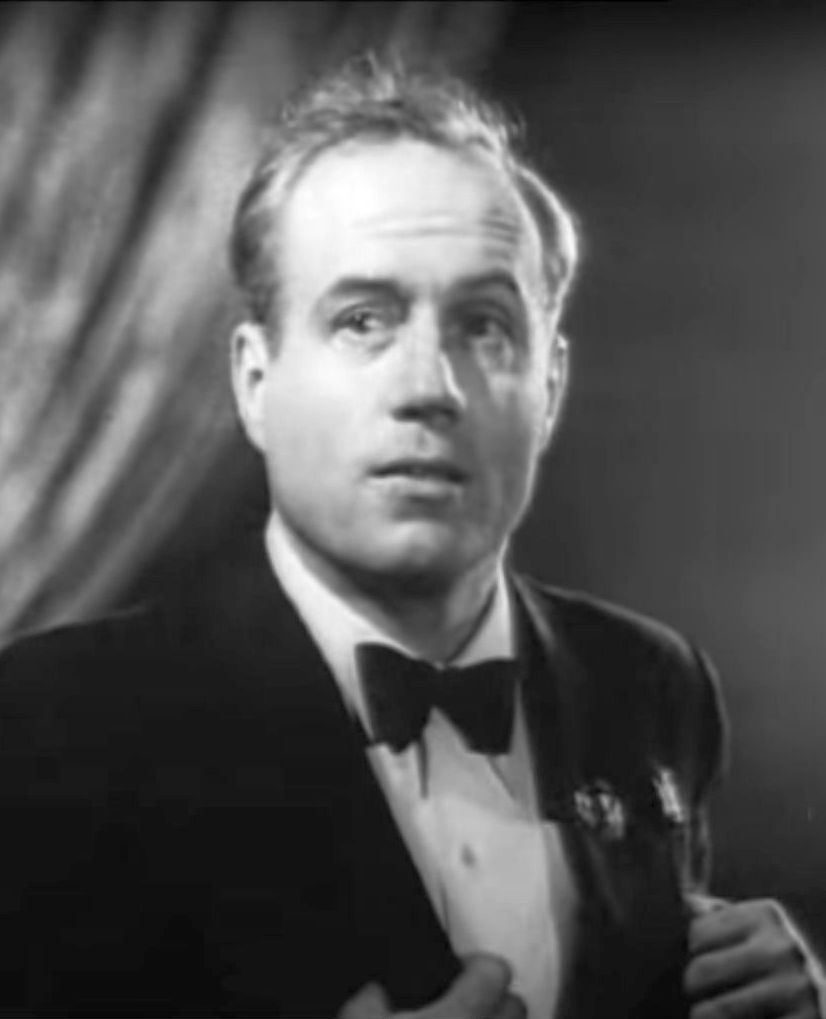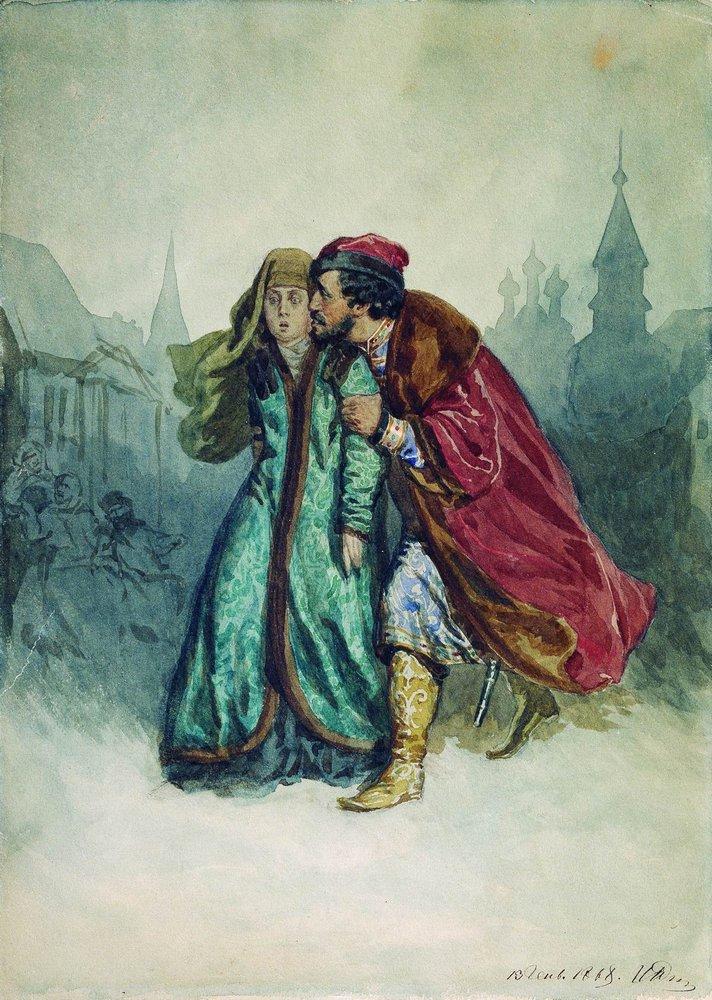|
Onisim Bron
Onisim Mikhailovich Bron (Russian: Брон Онисим Михайлович ; 1895-1975) was a Soviet conductor active from the 1930s to 1950s. From 1948 he was artistic director of the opera ensemble of All-Union Radio, and from 1952-1956 of the VTO Soviet Opera Ensemble (Ансамбль советской оперы ВТО) founded by Ivan Kozlovsky. Apart from recordings of Puccini and Massenet operas in Russian''Music in the USSR'' 1988 "Cio-Cio-San Y. Shumskaya; Pinkerton I. Kozlovsky, Suzuki Y. Gribova; Sharpless P. Selivanov. Bolshoi Theatre Soloists and Chorus, USSR Radio and TV Symphony Orchestra. Conductor Onisim Bron M10 07923 008" his recordings include several rarer Russian operas for Melodiya which have never been re-recorded. Recordings * Anton Rubinstein: The Merchant Kalashnikov (opera) * Paliashvili: "Daisi" ("Twilight") Opera montage in three acts, libretto by V. Gunia (Performed in Russian), Choir and orchestra of the USSR radio. Conductor - Onisim Bron 1938 ... [...More Info...] [...Related Items...] OR: [Wikipedia] [Google] [Baidu] |
All-Union Radio
All-Union Radio () was the radio broadcasting organisation for the USSR under Gosteleradio, operated from 1924 until the dissolution of the USSR. The organization was based in Moscow. History Beginning Following the October Revolution control over radio resources was given to the People's Commissariat for Posts and Telegraphs. Then, in 1924 it was transferred to a joint-stock company whose members were the Russian Telegraph Agency, a major electric factory, and the PCPT,10 but in 1928 was returned to the People's Commissariat for Posts and Telegraphs. The first All-Union Radio station, was opened upon Lenin's initiative (for a "paperless newspaper" as the best means of public information) in November 1924. On November 23, 1924 the first regular broadcast was produced in Moscow on the Comintern radio station, using the Shukhov radio tower. In 1925, the Radio Commission of the Central Committee of the RCP(B) was organized for overall supervision of radio broadcasting. On 30 Oct ... [...More Info...] [...Related Items...] OR: [Wikipedia] [Google] [Baidu] |
Union Of Theatre Workers Of The Russian Federation
The Union of Theatre Workers of the Russian Federation or STD of RSFSR (russian: Союз театральных деятелей Российской Федерации (СТД РСФСР), links=no) is the principal actors and theatrical workers union of Russia founded in 1887. It was previously known as the Russian Theatrical Society. The Russian Theatrical Society had its own theatrical and opera ensembles, which toured the Soviet Union, and also the frontline during the Great Patriotic War. The VTO Soviet Opera Ensemble was founded by Ivan Kozlovsky Ivan Semyonovich Kozlovsky (russian: Ива́н Семё́нович Козло́вский, uk, Іван Семенович Козловський; also referred to as Kozlovskiy or Kozlovskij; 21 December 1993) was a Soviet lyric tenor and on ... in 1938.Михаил Михайлович Яковлев ''Гордость советской музыки: музыканты, Герои Социалистического ...'' ... [...More Info...] [...Related Items...] OR: [Wikipedia] [Google] [Baidu] |
Ivan Kozlovsky
Ivan Semyonovich Kozlovsky (russian: Ива́н Семё́нович Козло́вский, uk, Іван Семенович Козловський; also referred to as Kozlovskiy or Kozlovskij; 21 December 1993) was a Soviet lyric tenor and one of the most well known stars of Russian opera, as well a producer and director of his own opera company, and longtime teacher at the Moscow Conservatory. People's Artist of the USSR (1940) and Hero of Socialist Labour (1980). Biography Ivan Kozlovsky was born in the village of Marianivka near Bila Tserkva, the Kiev Governorate, the Russian Empire (now in Ukraine), and began to sing at the age of seven in the choir of the St. Michael's Golden-Domed Monastery. He went on to study drama, piano and singing (with the famous soprano Olena Muravyova) at the Kyiv National I. K. Karpenko-Kary Theatre, Cinema and Television University. He also sang with his brother in Alexander Koshetz's choir in Kyiv. This instruction was cut short after tw ... [...More Info...] [...Related Items...] OR: [Wikipedia] [Google] [Baidu] |
Puccini
Giacomo Puccini (Lucca, 22 December 1858Bruxelles, 29 November 1924) was an Italian composer known primarily for his operas. Regarded as the greatest and most successful proponent of Italian opera after Verdi, he was descended from a long line of composers, stemming from the late-Baroque era. Though his early work was firmly rooted in traditional late-19th-century Romantic Italian opera, he later developed his work in the realistic ''verismo'' style, of which he became one of the leading exponents. His most renowned works are ''La bohème'' (1896), ''Tosca'' (1900), ''Madama Butterfly'' (1904), and ''Turandot'' (1924), all of which are among the most frequently performed and recorded of all operas. Family and education Puccini was born Giacomo Antonio Domenico Michele Secondo Maria Puccini in Lucca, Italy, in 1858. He was the sixth of nine children of Michele Puccini (1813–1864) and Albina Magi (1830–1884). The Puccini family was established in Lucca as a local musica ... [...More Info...] [...Related Items...] OR: [Wikipedia] [Google] [Baidu] |
Massenet
Jules Émile Frédéric Massenet (; 12 May 1842 – 13 August 1912) was a French composer of the Romantic era best known for his operas, of which he wrote more than thirty. The two most frequently staged are ''Manon'' (1884) and ''Werther'' (1892). He also composed oratorios, ballets, orchestral works, incidental music, piano pieces, songs and other music. While still a schoolboy, Massenet was admitted to France's principal music college, the Paris Conservatoire. There he studied under Ambroise Thomas, whom he greatly admired. After winning the country's top musical prize, the Prix de Rome, in 1863, he composed prolifically in many genres, but quickly became best known for his operas. Between 1867 and his death forty-five years later he wrote more than forty stage works in a wide variety of styles, from opéra-comique to grand-scale depictions of classical myths, romantic comedies, lyric dramas, as well as oratorios, cantatas and ballets. Massenet had a good sense of the th ... [...More Info...] [...Related Items...] OR: [Wikipedia] [Google] [Baidu] |
Melodiya
Melodiya ( rus, links=no, Мелодия, t=Melody) is a Russian (formerly Soviet) record label. It was the state-owned major record company of the Soviet Union. History Melodiya was established in 1964 as the "All-Union Gramophone Record Firm of the USSR Ministry of Culture Melodiya". It utilized numerous recording studios and manufacturing facilities throughout the USSR as well as powerful centres of distribution and promotional strategies. The best selling format at the time was 33⅓ and 78 rpm vinyl records. By 1973, Melodiya released some 1,200 gramophone records with a total circulation of 190-200 million per year, in addition to 1 million compact cassettes per year, was exporting its production to more than 70 countries.Great Soviet Encyclopedia, 3rd edition, volume 16, p. 54, Moscow, Sovetskaya Entsiklopediya publisher, 1974 The label's production was dominated by classical music, music by Soviet composers and musicians, performances by Soviet theatre ac ... [...More Info...] [...Related Items...] OR: [Wikipedia] [Google] [Baidu] |
Anton Rubinstein
Anton Grigoryevich Rubinstein ( rus, Антон Григорьевич Рубинштейн, r=Anton Grigor'evič Rubinštejn; ) was a Russian pianist, composer and conductor who became a pivotal figure in Russian culture when he founded the Saint Petersburg Conservatory. He was the elder brother of Nikolai Rubinstein, who founded the Moscow Conservatory. As a pianist, Rubinstein ranks among the great 19th-century keyboard virtuosos. He became most famous for his series of historical recitals—seven enormous, consecutive concerts covering the history of piano music. Rubinstein played this series throughout Russia and Eastern Europe and in the United States when he toured there. Although best remembered as a pianist and educator (most notably in the latter as the composition teacher of Tchaikovsky), Rubinstein was also a prolific composer throughout much of his life. He wrote 20 operas, the best known of which is '' The Demon''. He composed many other works, including five pian ... [...More Info...] [...Related Items...] OR: [Wikipedia] [Google] [Baidu] |
The Merchant Kalashnikov (opera)
''The Merchant Kalashnikov'' (russian: Купец Калашников, translit=Kupets Kalashnikov, links=no) is a three-act opera by Anton Rubinstein, with a libretto by . It is based on the 1837 narrative poem ''The Song of the Merchant Kalashnikov'' by Mikhail Lermontov. Background The opera was written between 1877 and 1879, and was first performed at the Mariinsky Theatre, Saint Petersburg on . Written about the same time as the composer's Fifth Symphony, it has been seen as an attempt by Rubinstein to place himself as a Russian nationalist composer, like the members of The Mighty Handful. It has many elements in common with Russian nationalist operas which preceded it, notably Nikolai Rimsky-Korsakov's opera ''The Maid of Pskov'' and Tchaikovsky's opera ''The Oprichnik'', both of which were also set in the times of Tsar Ivan the Terrible. It also contains typical features such as folk-songs, dances of jesters, chants of monks, and a chorus of praise for the Tsar. Like Rubin ... [...More Info...] [...Related Items...] OR: [Wikipedia] [Google] [Baidu] |
Dargomyzhsky
Alexander Sergeyevich Dargomyzhsky ( rus, link=no, Александр Сергеевич Даргомыжский, Aleksandr Sergeyevich Dargomyzhskiy., ɐlʲɪkˈsandr sʲɪrˈɡʲe(j)ɪvʲɪdʑ dərɡɐˈmɨʂskʲɪj, Ru-Aleksandr-Sergeevich-Dargomyzhsky.ogg; ) was a 19th-century Russian composer. He bridged the gap in Russian opera composition between Mikhail Glinka and the later generation of The Five and Pyotr Ilyich Tchaikovsky. Biography Dargomyzhsky was born in village Troitskoye, Belyov uyezd, Tula Governorate (now Arsenyevsky District, Tula Oblast), and educated in Saint Petersburg. He was already known as a talented musical amateur when in 1833 he met Mikhail Glinka and was encouraged to devote himself to composition. His opera '' Esmeralda'' (libretto by composer, based on Victor Hugo's ''The Hunchback of Notre Dame'') was composed in 1839 (performed 1847), and his ''Rusalka'' was performed in 1856; but he had little success or recognition either at home or abroad ... [...More Info...] [...Related Items...] OR: [Wikipedia] [Google] [Baidu] |
Rimsky-Korsakov
Nikolai Andreyevich Rimsky-Korsakov . At the time, his name was spelled Николай Андреевичъ Римскій-Корсаковъ. la, Nicolaus Andreae filius Rimskij-Korsakov. The composer romanized his name as ''Nicolas Rimsky-Korsakow''.The BGN/PCGN transliteration of Russian is used for his name here. ALA-LC system: Nikolaĭ Andrevich Rimskiĭ-Korsakov, ISO 9 system: Nikolaj Andreevič Rimskij-Korsakov. (18 March 1844 – 21 June 1908) was a Russian composer, a member of the group of composers known as The Five. He was a master of orchestration. His best-known orchestral compositions—''Capriccio Espagnol'', the ''Russian Easter Festival Overture'', and the symphonic suite ''Scheherazade''—are staples of the classical music repertoire, along with suites and excerpts from some of his 15 operas. ''Scheherazade'' is an example of his frequent use of fairy-tale and folk subjects. Rimsky-Korsakov believed in developing a nationalistic style of classical mu ... [...More Info...] [...Related Items...] OR: [Wikipedia] [Google] [Baidu] |
Servilia (opera)
''Servilia'' ( rus, Сервилия, Servilya , the name of a main character), is an opera in five acts by Nikolai Rimsky-Korsakov. The work was completed in 1901, and was first performed in 1902 in St. Petersburg, Russia. The composer wrote the libretto, which is based on the drama by Lev Alexandrovich Mey. The story is set in Ancient Rome during Nero's reign. Performance history The world premiere took place in St. Petersburg on 14 October ( O.S. / 1 October) 1902 at the Mariinsky Theatre. It was the only one of Rimsky's late operas not performed in Mamontov's private theatre - conducted by Feliks Blumenfeld. A second performance took place in 1904, and a third in 1944. An LP of extracts from Act 3 scene 5 and Acts 4 scenes 5 and 6 was recorded in 1951 under Onisim Bron with Olga Piotrovskaya in the role of Servilia, Georgi Nelepp as Valery and Pavel Lisitsian as Egnaty. Only one aria, the Act 3 "my flowers" aria of Servilia («Цветы мои, и вы в палящий ... [...More Info...] [...Related Items...] OR: [Wikipedia] [Google] [Baidu] |





